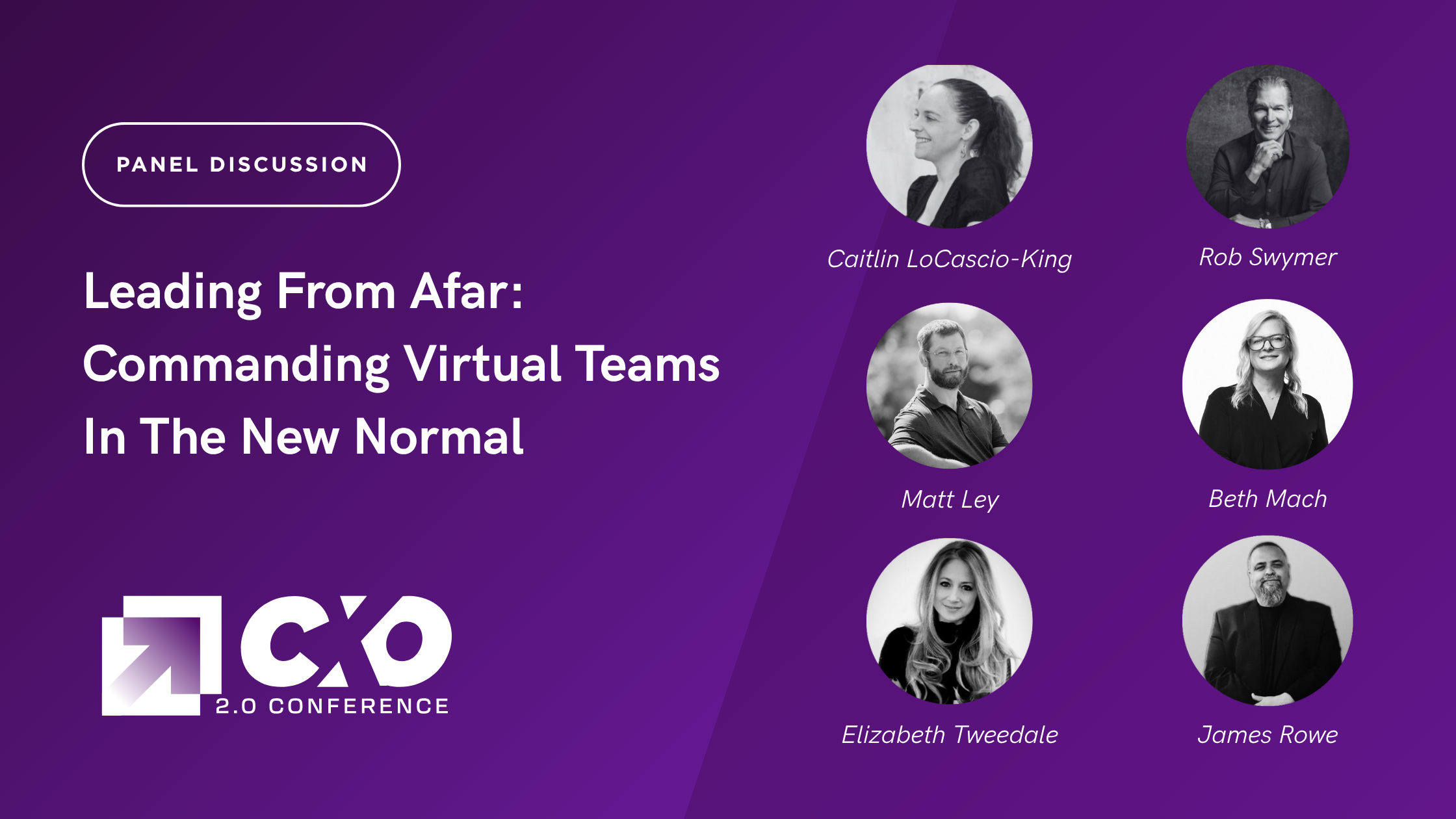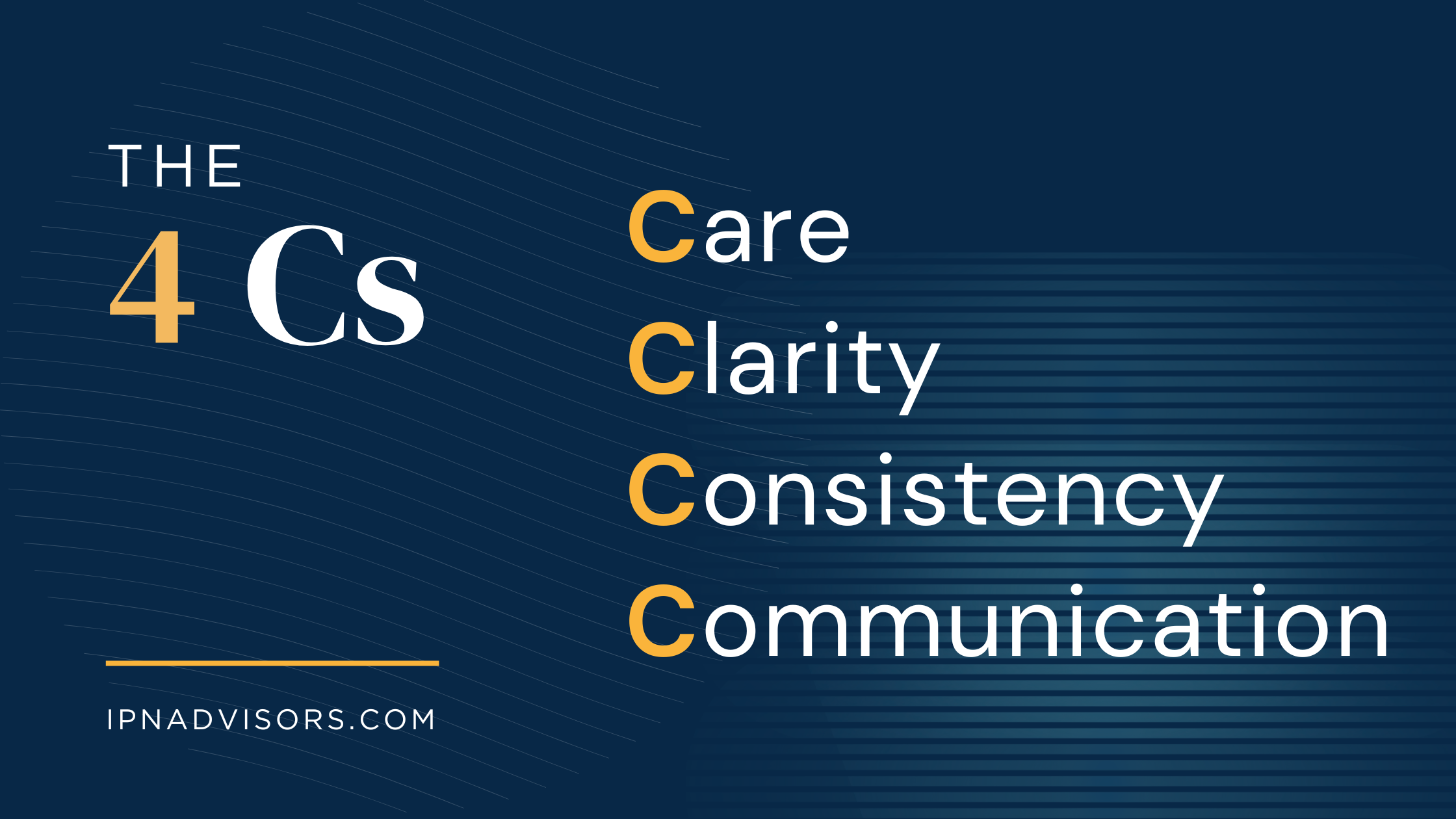Leading From Afar: Key Insights from CXO 2.0 Las Vegas
The shift to remote and hybrid work isn't just a workplace trend—it's a fundamental inflection point that's reshaping how organizations operate, communicate, and build culture. At the recent CXO 2.0 conference in Las Vegas, our co-founder Matt Ley had the privilege of joining an incredible panel to discuss "Leading From Afar" alongside some truly insightful leaders.
The Panelist Powerhouse
What made this discussion so rich was the diverse perspectives brought by the fellow panelists:
The Remote Work Inflection Point
Here's what became crystal clear during the discussion: the shift to remote/hybrid work represents one of the most significant organizational inflection points of our time.
Think about it this way. For decades, organizational culture was built around physical proximity. Water cooler conversations, conference room dynamics, the ability to "read the room" (literally). Suddenly, we're asking leaders to build the same level of trust, engagement, and performance through screens.
This isn't just a logistical challenge. It's a complete state change. Like water turning to steam at 100 degrees, the fundamental nature of how we lead had to evolve.
The Truth About Remote Leadership
The key insight Matt shared during the panel? Remote and hybrid work doesn't require us to become completely different leaders. It requires us to become more intentional leaders.
The core principles of good leadership and management haven't changed. What's changed is that we can no longer rely on proximity guised as connection to hide our leadership gaps. Remote work has essentially become a magnifying glass for leadership effectiveness. It amplifies both our strengths and our weaknesses.
IPN Advisors’ 4 C’s: Care, Clarity, Consistency, and Communication
The 4 Cs: Your Foundation for Remote Trust
During the panel, Matt highlighted what he calls the "4 Cs"—a framework that has become even more critical in remote environments. These four elements are the building blocks of trust and healthy culture, whether your team is in the same building or scattered across time zones:
1. Care
As Teddy Roosevelt said, "People won't care how much you know until they know how much you care." In remote work, this becomes exponentially more important.
When people are anxious about change or confused about new processes, they need to feel seen and heard before they can absorb any information you're sharing.
Care in remote environments means:
Genuine check-ins on individual well-being
Creating psychological safety for vulnerability
Acknowledging the extra challenges of distributed work
Reducing the energy drain of "border protection"—when people can let their guard down because they trust you care
2. Clarity
Remote work has zero tolerance for ambiguity. Clarity is two-fold: being clear about what you're sharing AND sharing it in a clear way.
The intention-perception gap that exists in all communication becomes a canyon when filtered through screens and technology.
In distributed teams, clarity means:
Crystal-clear role definitions and expectations (explicitly written out and accessible by all)
Accessible language that matches your audience
Explicit decision-making authority
Reducing energy drain from misunderstandings
3. Consistency
When people can't see you in the hallway or grab you for a quick question, consistency becomes the backbone that holds everything together.
People need predictable rhythms, not just in activities but in the triggers that cause you to pivot or change direction.
Consistency in remote work includes:
Regular meeting cadences and communication patterns
Consistent processes and policies (again, explicitly written out and accessible by all)
Reliable response times and availability
Reducing the energy drain of "artificial contingency planning" (ie being ready for Dr. Jekyll AND Mr./Ms. Hyde)
4. Communication (Or Really, Over-Communication)
The golden rule of remote leadership: when you're tired of talking about something, that's about the time when people are starting to hear and grasp it.
The assumption gap between what we think we've communicated and what people have actually absorbed becomes massive in distributed environments.
Effective remote communication means:
Repeating key messages across multiple channels
Creating feedback loops to ensure understanding
Being on the same page, in the same book, written in the same language
Reducing energy drain from assumptions and confusion
The Intentionality Imperative
What the panel discussion reinforced is that remote work hasn't broken leadership. It's revealed where our leadership was already fragile. Organizations that struggled with communication, trust, or accountability before remote work simply found those struggles amplified.
But here's the opportunity: organizations that use this inflection point to become more intentional about their leadership practices often emerge stronger than they were before.
The companies thriving in remote environments aren't necessarily the ones with the best technology. They're the ones that doubled down on the fundamentals of good leadership and management, now executed more deliberately.
Your Remote Leadership Reflection
As you think about your own organization's journey with remote or hybrid work, consider these questions:
Where has remote work exposed gaps in your leadership approach?
How intentional are you being about building the 4 Cs into your remote culture?
What leadership practices that worked in-person need to be redesigned for distributed teams?
How are you measuring trust and engagement in your remote environment?
The Conversation Continues
As Matt shared with our team, the energy in that Las Vegas conference room was electric because everyone recognized we're living through a fundamental shift in how work gets done. But more than that, we're pioneering new ways to build human connection and drive results in a distributed world.
The leaders who will thrive in this new landscape aren't the ones waiting for things to "go back to normal." They're the ones embracing this inflection point as an opportunity to build something better.
Want to dive deeper into building intentional leadership practices for your organization? Connect with Matt on LinkedIn and let him know what leadership challenges you're navigating in your remote or hybrid environment.
At IPN Advisors, we specialize in helping organizations navigate these exact inflection points—turning the challenges of distributed work into opportunities for stronger culture and more effective leadership. Learn more about our approach →


